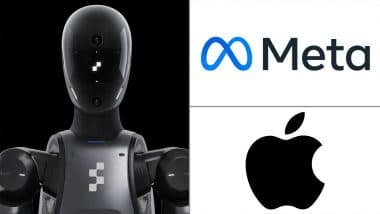Meta to develop AI-driven humanoid robots under new Reality Labs
Following its big bet on artificial intelligence (AI), Meta seems to have set its sight on the next major plunge. If an internal company memo accessed by Reuters is to be believed, the California-based tech conglomerate is setting up a new division as part of its Reality Labs unit to develop humanoid robots, powered by AI, which can assist with physical tasks.

In the memo reviewed by Reuters, Meta's chief technology officer Andrew Bosworth revealed that the robotics product group would focus on research and development of "consumer humanoid robots" aimed at maximizing its main series of AI foundation models called Llama. According to Bosworth, expanding the portfolio to invest in this field will bring additional value to Meta AI and its mixed and augmented reality programs.
Slow Progress in AI-Powered Humanoid Development
Despite billions in investment from major tech companies and startups into AI-powered humanoids for manufacturing, logistics, and household tasks, progress on the development of robots has been slow. Researchers have found that breakthroughs in language-related AI, which have driven chatbot development, have not necessarily improved robots' understanding of the physical world.
Meta's Investment in Reality Labs
The memo underscores Meta's major investment in the Reality Labs unit—dedicated to developing technologies for future growth—despite facing significant financial losses since its inception. The unit incurred a loss of around $5 billion in the fourth quarter of last year, Reuters added.
Focus on 'Embodied AI' Research
For years, Meta has been funding research into 'embodied AI', aiming to create AI assistants that can see, hear, and navigate the 3D physical world. The company’s top AI scientist, Yann LeCun, has also emphasized the limitations of language models and is working to develop new models that can better understand physical space.

New Division Leadership
The new division will be led by Marc Whitten, former CEO of self-driving car company Cruise, who Meta has hired as vice president of robotics, Bosworth noted in the memo. He also mentioned that John Koryl has been hired as vice president of retail. Koryl, previously CEO of The RealReal, will help expand Meta’s direct-to-consumer sales of products like the Quest mixed reality headsets and Ray-Ban Meta smart glasses, which Meta makes with EssilorLuxottica.
Competition with Tesla
In the long run, Meta will face stiff competition from the likes of Tesla, whose CEO Elon Musk had recently stated that his company’s humanoid robot Optimus is capable of performing many daily tasks and will eventually be sold to customers.
Tesla's Robot Development Plans
Tesla plans to deploy pre-production Optimus prototypes in its factories by late 2025, with production units expected to be available by 2026. During the current year, Tesla aims to have more than 1,000 robots in its manufacturing facilities, with Elon Musk predicting significant profitability and a global market for one billion robots annually.











